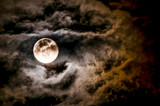A Complete Guide to Kidney Deficiency in Chinese Medicine
Forest Medicine: An Introduction to the Fundamentals of Chinese Medicine
Kidney deficiency might best be described in our common language as premature aging—but it’s much more than that. Here, I hope to illuminate this frequently mentioned Chinese Medicine diagnosis. To do so, we will take a building block approach, moving from the basic to the complex.
The Five Elements and Organ Systems: Understanding the Principles of Chinese Medicine
To understand organ functionality in Chinese Medicine, we must start with the Five Elements, as each organ is linked to a specific element. These elements are Fire, Earth, Metal, Water, and Wood, each aligning with a season and organ system:
- Fire: corresponds to Summer, governing the Heart and Small Intestine.
- Earth: pairs with the Harvest season, ruling the Spleen and Stomach.
- Metal: relates to Fall, overseeing the Lung and Large Intestine.
- Water: is connected to Winter, managing the Kidney and Bladder.
- Wood: is associated with Spring, commanding the Liver and Gall Bladder.
Identifying Symptoms of Kidney Deficiency in Chinese Medicine

In considering Kidney Disease, we reference the Water Element and the Winter Season. The Water Element manifests within the body in several major ways:
- Metabolism
- Reproductive Health
- Adrenal Health and Proper Regulation
- Emotional Health and Maturity
- Physical Development
- Sexual Organ Health and Function
- Longevity
- Bone Strength
One can have a balanced Water Element or a weak one, which is another way of saying sufficient Kidney Qi or Kidney Deficiency. Good Kidney Qi, a strong Water Element, manifests as:
- A firm sense of self, calmness within
- A courageous outlook on life
- The ability to set and accomplish goals
- A robust immune system, strong health
- A balanced, healthy sexual drive and reproductive functioning
Conversely, a weak Water Element, or Kidney Qi insufficiency/deficiency, might result in:
- Anxiety and heightened fear and insecurity
- A lack of willpower
- Poor immune health, susceptibility to illness
- General weakness, chronic fatigue
- Sexual and reproductive dysfunction
Discussing Kidney Qi, sufficiency, and deficiency requires describing the Water Element's nature and characteristics—that which is tied to the Kidney and Winter. The Water Element, the most Yin of all elements, has characteristics of storage (akin to the Kidney storing Qi and Jing), ascending and descending movements, rooting and anchoring, density and consolidation, and concentration. The Kidney is the root of life, our most important energy reservoir (Qi).
The Micro and the Macro in Chinese Medicine: Reflecting Universal Balance

A fundamental tenet of Chinese Medicine is the concept of the microcosm and macrocosm. The outside world (nature) and the inside world (body, mind, spirit) are reflections of one another. The qualities of the inside world are mirrored in the outside world, and vice versa. Because our organs are in constant flux, other elements directly impact our Water Element, i.e., our Kidney Qi. Here’s a brief look at how this interplay occurs:
- The Earth Element: associated with dampness, can create a stickiness that negatively affects water quality within our bodies.
- The Metal Element: linked to dryness, can deplete water in the body.
- The Fire Element: related to heat, can evaporate and thicken water.
- The Wood Element:associated with wind, can invade the Kidney and Bladder, disrupting the Water Element's smooth flow.
It's important to note that in Chinese Medicine, no one element is inherently "bad" or "pathological." The goal is not to have an excess of "good" elements and a deficiency of "bad" ones; the goal is equilibrium within all elements. Thus, while too much heat can become pathological, the solution is not to eliminate heat altogether but to find balance.
Kidney Qi Deficiency: Managing Symptoms and Seeking Balance
With Kidney Deficiency, the signs and symptoms often focus on urinary and sexual functioning, generalized weakness, and poor development, manifesting as low sex drive, chronic lower back pain, depression, fear, fatigue, premature ejaculation, urinary incontinence, spontaneous sweating, bed-wetting, insomnia, developmental delays in children, poor memory, dizziness, and hearing loss or tinnitus. As Kidney Deficiency intensifies, other symptoms like coldness, feelings of heat, and digestive issues may arise.
In essence, Kidney Deficiency is the result of excess—living a life at both ends of the candle. It's the outcome of a life shaped by Western values, such as the American Dream—a life lived on credit.
Our normal daily activities require energy, derived from our storage (the Kidney). This storage is replenished through lifestyle, food, and air. However, if we demand too much energy from our reserves (think excessive caffeine consumption), we deplete them. Instead of using our 'checking account,' we dip into our 'savings.' Ideally, our daily energy use should be replenishable, but if we burn too intensely, we diminish our capacity for regeneration.
A Modern Life as the Antithesis of Balance: Managing Kidney Deficiency
Modernity, with its relentless pace and pressures, seems almost designed to sap our Kidney Qi and destabilize the Water Element. The stressors of contemporary life, the constant interaction with technology, our estranged relationship with the natural environment, and shifts in our dietary and lifestyle habits collectively levy an extraordinary toll on our energetic reserves. This relentless drain to meet the escalating demands of daily life is only intensified by suboptimal lifestyle choices, leading us into a vicious cycle of dependence on stimulants and insufficient rest, further exacerbating our energetic shortfall.
Yet, it is within our power to recalibrate and reclaim dominion over our well-being, to restore what has been depleted and to cultivate a renewed sense of vitality within our Water Element.
Strategies for Replenishing Kidney Qi: Towards a Strong Water Element
This restorative process is threefold: constraining our energy expenditures, curtailing our dependence on external stimuli, and actively fortifying our reserves. By prioritizing lifestyle adjustments, self-nurturance, and mindful nutrition, we can safeguard robust Kidney Qi and a vigorous Water Element.
- Constraining Energy Expenditures: The challenge of moderating energy output is formidable, as our culture is entrenched in the belief that abundance is a necessity, not just a luxury. It requires a deliberate shift towards embracing minimalism and expressing gratitude for our current blessings. We must pivot from the allure of the novel and the material to the timeless treasures that cannot be purchased—love, community, and familial bonds.
- Curtailing the Need for Stimulation: Our daily lives are inundated with stimulants: caffeinated beverages, alcoholic drinks, sugary concoctions, overly processed foods, the omnipresent screen time, and the incessant yearning for more—possessions, experiences, indulgences. This persistent desire, including sexual excess, often masks a deeper quest for fulfillment.
- Fortifying Our Energetic Reserves: For me, this is where joy intersects with health. Relaxation, the practice of internal arts such as Qi Gong, meditation, Tai Chi, nourishing our bodies with whole foods, re-engaging with our social circles, and ensuring ample rest are not just activities but vital components of rejuvenation. Prudent integration of Chinese Medicine can further aid in this renewal process.
Practical Tips for Managing Kidney Qi on a Daily Basis
Should you find yourself perpetually overextended—whether through professional obligations, social engagements, or physical exertions—begin by conserving energy where possible and then seek strategies to enhance that conservation. Moderation is key; excessive exertion that leaves you drained is a clear signal of imbalance. Regular, rejuvenating exercise should boost, not deplete, your energy.
Self-care must be a daily ritual. If external pressures compel you to forgo your own needs in favor of others, it's crucial to recognize that self-care is not selfish; it equips you to be more present and supportive for those around you.
The Legacy of Kidney Qi: Understanding the Epigenetic Implications in Chinese Medicine
We are part of a continuum, inheriting not just genetic material but also the energetic patterns of our ancestors, as illustrated by public health trends suggesting that the current generation in the US may have a shorter lifespan than the previous one. This phenomenon, now recognized in science as epigenetics, has been acknowledged in Chinese Medicine for millennia. If our progenitors were energetically deficient, that scarcity is bequeathed to us, influencing our vitality.
In the current era, life seems to be dictated by an unrelenting demand for—and from—stimulation. As our days feel shorter and the demands grow, we witness a parallel with pathology, akin to cancerous growth within the body. Paradoxically, by imposing limits, we can achieve a healthier, more contented existence, contrary to the consumerist narrative that inundates us.
Site Disclaimers
General Guidence
The content on this site is provided for educational and informational purposes only and should not be construed as medical advice. Always consult a qualified healthcare provider before making changes to your diet, lifestyle, or health regimen, particularly if you are pregnant or nursing, under the age of 18, managing allergies or known sensitivities, or living with any medical conditions.
At RAW Forest Foods, your safety is our priority. Please note that our products are dietary supplements, not medications. The following disclaimer applies:
* These statements have not been evaluated by the Food and Drug Administration. These products are not intended to diagnose, treat, cure, or prevent any disease.
Ingredient Transparency and Allergen Awareness
We are committed to providing transparent ingredient information to help you make informed decisions. If you have or suspect you have allergies to any of our ingredients, we strongly advise against using our products, as allergic reactions can be severe.
Interaction with Medications
If you are taking any medications, consult with your healthcare provider before using supplements. Certain supplements may interact with medications, potentially altering their effectiveness or causing unwanted effects.
For more details, please review our full Terms and Conditions.






